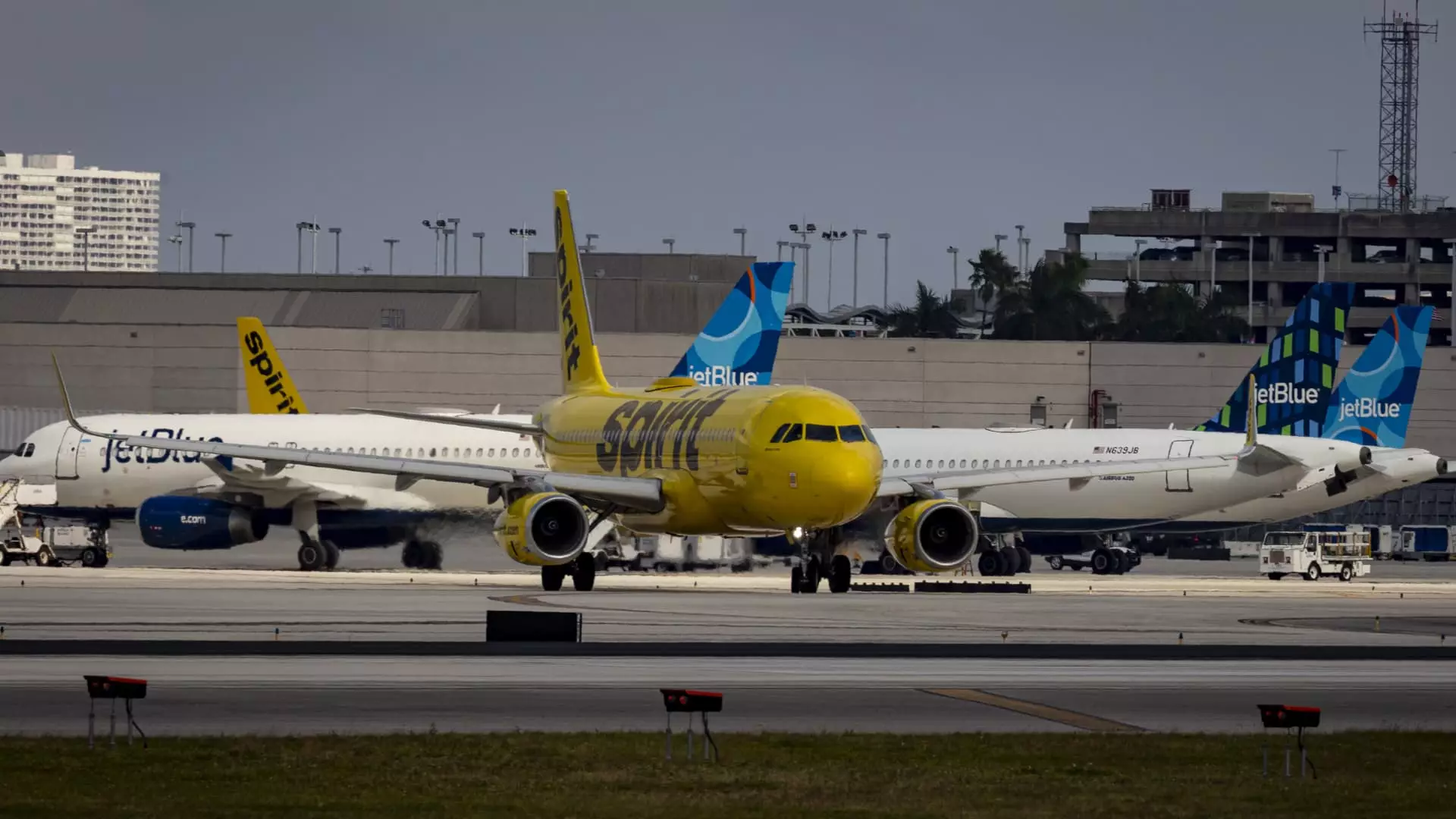In a recent court ruling, a federal judge has prohibited the merger between JetBlue Airways and Spirit Airlines on the grounds of antitrust concerns. This decision has raised significant controversy, prompting both airlines to appeal the ruling. The merger, which was valued at $3.8 billion, was anticipated to have a substantial impact on the aviation industry. However, Judge William Young’s ruling deemed the merger detrimental to cost-conscious consumers and the market competition.
Judge Young’s ruling is based on the argument that JetBlue’s acquisition of Spirit Airlines would eliminate a low-cost carrier option for consumers, ultimately leading to higher prices. In his decision, he highlighted the fact that JetBlue planned to remove seats from Spirit’s planes, which would limit choices for budget-conscious travelers. The ruling serves as a victory for consumers who actively choose Spirit Airlines due to its affordability.
The court ruling has drawn attention to the struggling position of Spirit Airlines in the industry even before this judgment. With decreasing travel demand, escalating costs, and grounded planes due to a Pratt & Whitney engine issue, Spirit was facing significant challenges. As a result, financial analysts expressed concerns about the future viability of the airline, causing its shares to plummet. However, Spirit’s announcement of efforts to refinance its debt and a positive financial forecast have helped the company regain some stability in the stock market.
JetBlue’s Reaction and Appeal
JetBlue Airways, disappointed with the court’s decision, has decided to appeal the ruling in compliance with the terms outlined in the merger agreement. The company had anticipated significant benefits from the acquisition, but the court ruling has forced a reassessment of its strategic plans. The appeal aims to challenge the court’s assertion that the merger would be detrimental to the industry and prove that it would have brought greater value to consumers.
The court ruling concerning the JetBlue-Spirit merger has prompted industry analysts to question the potential impact of other mergers, specifically the proposed Alaska and Hawaiian merger. However, experts argue that the Alaska and Hawaiian merger faces fewer challenges due to minimal route overlap and the intention to operate as separate brands. Consequently, the court’s ruling in the JetBlue-Spirit case may not necessarily have implications for other mergers in the aviation industry.
The court ruling blocking the merger between JetBlue Airways and Spirit Airlines has ignited a fierce debate within the aviation industry. Cost-conscious consumers who rely on Spirit Airlines herald the decision as a victory, as it preserves their access to an affordable carrier option. Conversely, JetBlue Airways has expressed disappointment and is determined to appeal the ruling. The ultimate outcome of this case will significantly impact the aviation industry, shaping the future landscape of airline mergers and competition regulations.


Leave a Reply